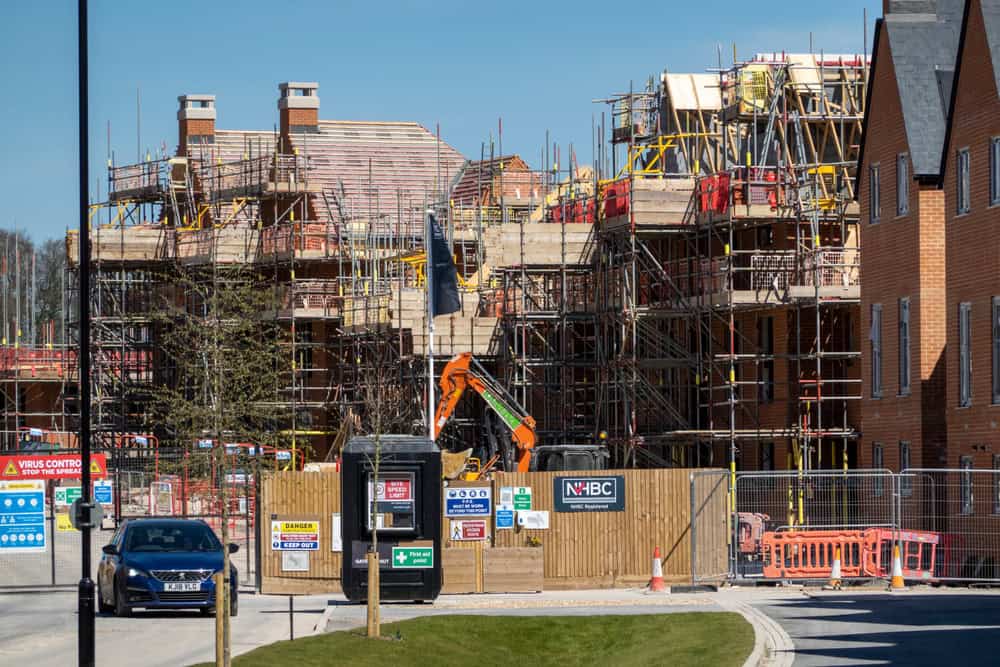In a bold move set to invigorate the scaffolding and construction sectors, Deputy Prime Minister Angela Rayner has reinstated mandatory house-building targets for planning authorities across England.
This significant policy shift aims to fulfil Labour’s ambitious election manifesto promise of constructing 1.5 million new homes in England by the next general election.
The announcement heralds a potential boom period for the scaffolding industry, poised to play a critical role in meeting these targets.

Rayner’s new rules reverse last year’s decision to dilute housing targets, mandating councils to meet specific construction goals. Emphasising both professional responsibility and moral obligation, she has communicated directly with council leaders and chief executives, underscoring the importance of this initiative.
To ensure compliance, Rayner has not hesitated to threaten government intervention should councils fail to develop adequate plans.
The focus on brownfield land and introducing the ‘grey belt’—areas on the edge of settlements and roads, including old petrol stations and car parks—are expected to streamline the approval process for new developments.
This prioritisation could lead to an unprecedented surge in construction activity, thereby increasing the demand for scaffolding and related services.
Achieving the target of 1.5 million homes by 2029 will require an almost twofold increase in the current annual output of 158,200 housing units in England. Rayner has set an even higher goal of 370,000 units per year, a figure that underscores the monumental scale of this undertaking.
Industry leaders have responded positively to the announcement, with thirty-three major house-building companies, represented by the Home Builders Federation, expressing support for the government’s reforms.
Neil Jefferson, chief executive of the Home Builders Federation, remarked that the new planning system is a significant step towards overcoming long-standing barriers to housing delivery. He emphasised the importance of a reformed planning system in addressing land availability and affordability pressures.
Small and medium-sized house-building companies, while generally supportive, have voiced the need for more comprehensive reforms. Richard Beresford, chief executive of the National Federation of Builders (NFB), highlighted the necessity of removing barriers to construction and ensuring that policies not only facilitate planning approvals but also enable ground-breaking work.
Rico Wojtulewicz, NFB’s head of policy and market insight, stressed the importance of strategic planning and the need to focus on the planning process’s commercial impacts. He also called for greater attention to the role of SMEs, which are pivotal in training apprentices and building social housing. Wojtulewicz emphasised the need for policies that support biodiversity net gain without hindering affordable housing projects.
The government’s strategic planning reforms, coupled with increased planning fees and expanded criteria for nationally significant infrastructure projects, aim to streamline the construction process. A consultation paper on these proposals is currently open for feedback until September 24, 2024.
The positive response from industry heavyweights, including Land Securities and the British Property Federation, underscores the widespread support for these measures.
Mark Allan, chief executive of Land Securities, praised the focus on brownfield land and mixed-use developments, while Melanie Leech, chief executive of the British Property Federation, lauded the package as a catalyst for addressing the housing crisis and stimulating economic growth.
As the scaffolding industry prepares to meet the increased demand, the reinstatement of housing targets promises to usher in a period of robust growth. With the government and industry aligned on the path forward, the scaffolding sector is set to play a pivotal role in building the homes that will shape the future of England’s housing landscape.


